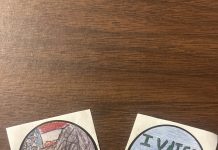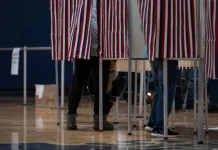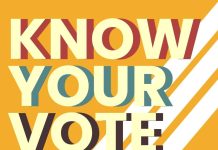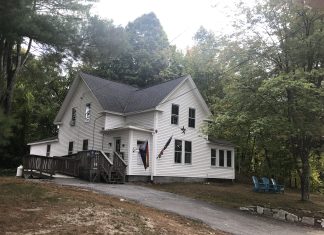It goes without saying that in the past seven months, we have all lost more than we could ever know. I don’t need to recount every canceled trip, every friend or family member we haven’t gotten to see, the jobs we’ve lost, the compromises. This is, without a doubt, the darkest moment in history which I have come to witness, which says quite a lot for a child raised by a post-nine-eleven world. And though we have all learned in this time to cope, to adjust, to find a new normal, it is hard to ignore the looming grayness of it all.
But I don’t want to write another sad article where I tell you how terrible everything is, how end-of-days it all feels, because I myself have come to realize that this cloud may have a silver lining indeed.
The term “renaissance,” means “a revival of or a renewed interest in something,” according to the Oxford Dictionary. It is possible that the word takes your mind to Europe in the 1300-1500s, when coming out of the Dark Ages, the people of Europe developed a newfound interest in reason, technology, and discovery. Or maybe you think of the Harlem Renaissance, a literary movement coming out of Harlem, New York in the early 20th century. A movement that brought us the works of greats such as Langston Hughes and James Baldwin, stories and poems about the lives of poor, black Americans in a time when their voices were consistently silenced.
Both of these movements, as well as countless other revolutions in art and technology and fashion, have something in common; they follow extraordinary periods of darkness in history.
I pose that something similar could be happening before our eyes: the COVID renaissance.
I saw it in myself first. When you’re locked in a house all day, seeing the same people over and over, your mind naturally wanders into a place of nihilism: It doesn’t matter what I do, it doesn’t matter what I eat, it doesn’t matter what I wear because no one is around to watch. The nihilism is hard to avoid, though in itself, it is neither good nor bad, it is up to the individual to do with it what they will. For many, we have come to realize, it pulls on them like quicksand. They wear the same pajamas every day, they eat junk food, they watch too much T.V.
The nihilism quickly turns into depression and despair.
Though there is another side to this coin: Optimistic Nihilism. We realize from the absurdity of our situation that maybe there is no meaning, no purpose. Before this point, we have all lived such superficial lives dressing and acting for others whether we realized it or not, and without that, we realize how emptily we have been treating the world. In realizing the absurdity, in taking ourselves out of the superficial society, we give ourselves the chance to experience ourselves and our universe in a way that is more sincere.
I feel like before quarantine, the way I dressed and acted was very restricted because it always went back to “what will other people think?” It led to me not wearing the clothes I wanted to wear because I was afraid of how people would react if I did something they didn’t expect. I didn’t want to draw attention to myself by wearing dresses or eye shadow outside of special occasions because it simply wouldn’t be expected of me. Furthermore, I didn’t get to read the books I wanted to read or write the stories I wanted to write because I was always too busy doing things for other people.
While in quarantine I realized that what is more important than the perception of others is my own happiness, and with that discovery, I unlocked so much freedom to present myself in whatever way makes me happy on that day and to create art for the sake of myself, not for the sake of others approval.
I have a theory that I am not alone here. I go on social media platforms like Tiktok and Instagram and I see creators dressing in ways that are outlandish and silly, but amazing all the same. I see people prioritizing themselves over the approval of others, and I have to wonder if my peers feel the same way.
I reached out to two N.E.C. students, Tucker Anglemyer and Guershon Villiere for comment. I asked them if they felt that their own style, be it through art or dress, has changed much in the past six months and if they think that change has to do with the quarantine.
“Quarantine has done a lot of beautiful things for me. From the way my feet hit my bed in the morning to the swagger in my walk to the style in my clothes, everything has changed for the better,” Tucker responded. He did have trouble in the beginning with feeling lazy and like he wasn’t accomplishing enough, which lead him to change his behavior.
“I began to just challenge my brain every day, finding something to read or learn, doing a puzzle, going outside, and creating something, creating things with my family, I would write, and so forth. I found myself, every day, simply trying a new activity or challenge and feeling increasingly happier and more aware of myself and surroundings.”
It seems as though Tucker and I had a very similar experience pre-COVID, one that I assume many other folks our age must have, where there seemed to be a consistent social pressure to fit into the world a certain way, while leaving us both unfulfilled. Tucker explained that quarantine taught him how to be okay with himself. “It made me figure out things that I did not like about me, or things I did like and wanted to see more of. I think, initially, my attitude on things began to change. I began to empathize more and learn other peoples’ experiences.”
As for his style, Tucker explained that he wanted to stand out but still look “casual and cool.” He explained that because of quarantine, he was able to test all different kinds of clothes to find what fit the best, “I threw things away, and kept things, and now I feel like I have a much better grasp on my style. I try to keep it crisp and cool, while maintaining the cool skater-dad look.” He felt like for the first time ever, he knew how to dress well. “Whenever old friends see me, they are shocked, and it feels great. My confidence has grown a lot, mostly due to the feeling of not caring what people think of me.”
He concluded by explaining that throughout the quarantine, his knowledge and willingness is what grew most, quickly followed by his confidence. “2020 was full of unknowns, liars, hypocrites, untold truths, told lies, and so forth. It was confusing and the only way for (him) to get an edge on anything was to educate (himself).”
Guershon also admitted that quarantine changed the way he dressed and acted, explaining, “I decided that I would buy more colorful pieces to wear and so I now have all types of different colors to wear!” He also picked up skateboarding again and felt like he had fully adopted the skater’s “chill, laidback” style.
However, he also made sure it was known that these changes did not feel huge and should not be overthought as pop culture and that personal style is constantly changing regardless, which is an important point to consider.
Though I am interested to see the way this era will be looked back on by future generations and what sort of art will come out of this “renaissance” in coming months and years.



















